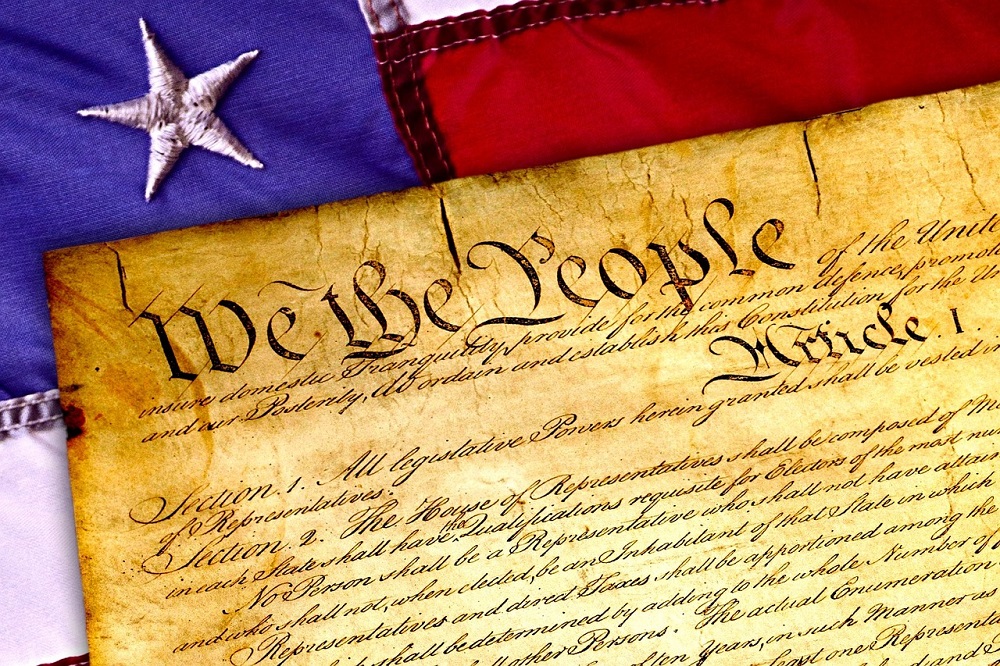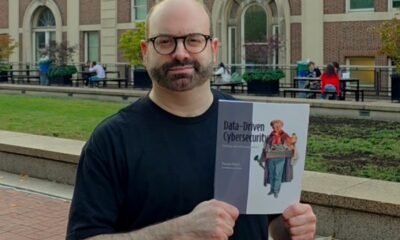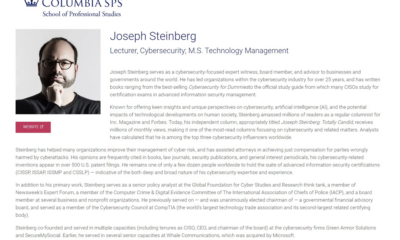Opinion: Congress Must Extend Civil Rights Protections To Social Media Users
Over the past week, Facebook banned various controversial figures from its platforms; the social-media giant publicly noted, for example, that it instituted permanent bans on Louis Farrakhan, Laura Loomer, and Alex Jones, among others. Twitter likewise suspended various accounts. While many people celebrated such actions as a step towards the defeat of extremism and hate – Facebook described the banned folks as “dangerous individuals” – I firmly disagree; a terrible Pandora’s box has been opened – and it is one that requires immediate attention from lawmakers.
One of the hallmarks of American democracy is Freedom of Speech. In many ways, the weight given to this right separates the United States from other democracies – and has helped contribute to our nation’s unparalleled success in the history of humanity. Freedom of Speech provides many benefits to both individuals and to society as a while, including ensuring that people can safely express ideas that may eventually lead to various forms of progress, but which, when said, may be considered controversial or even repugnant. Obviously, we do not need the First Amendment to protect polite speech with whose content most Americans agree – nobody has problems with the sharing of such opinions – we need the Constitutional Right to ensure that unpopular opinions can be safely aired.
Of course, no freedom is absolute and without limitation: Anyone who screams “fire” in a crowded movie theater, for example, or who verbally extorts money, shares classified information, or calls in a fake bomb threat to a school is likely to go to prison. Someone who leaks various forms of proprietary information, or slanders someone else, may end up in court as the defendant in a civil lawsuit.
In short, our laws – as established by our democratically-elected federal and state governments – have already set appropriate limits on free speech. And, our Supreme Court has already spoken about how such limitations must be tightly controlled even in cases of repugnant speech – even allowing Nazis bearing swastika flags to march through a neighborhood in Illinois that was home to many Holocaust survivors.
Of course, social media platforms operators are private companies, and, as such, under today’s laws as interpreted by our Supreme Court, are under no obligation to respect or provide freedom of speech.
That needs to change.
Today, social media is the de facto venue for a significant portion of humanity’s idea sharing and public debate; it must remain open to all legal speech, lest it quash unpopular opinions, and undermine one of America’s most basic and valued principles.
Facebook, today, prohibits people from violating “community standards” – but consider the implications of a private company setting such standards. If Facebook had existed in the 1950s, its “community standards” might have banned various forms of social interactions between people who happen to have skin with different concentrations of pigment. Until relatively recently, “community standards” could easily have led to a social media provider banning anyone who posted a photograph of himself kissing his or her same-sex partner.
Only time will tell what societal norms of today will be dismissed as obscene in the future, and what ideas that are considered repugnant today will eventually be viewed as obvious, objective reality.
Today, however, vague social media platform policies mean that people cannot engage in rational, good-faith debates on controversial topics such as the definition of gender, abortion, gun control, and religious matters, without risking potentially being suspended, or even permanently banned, from their platforms of choice. Even folks sharing nothing but objective facts related to such topics are at risk. Considering how much time and money various figures have spent on building a social audience, and that many people’s livelihoods rely on their ability to utilize their social media accounts, it is reasonable to believe that such fears are already quashing opinions that differ from those of the social media platforms’ management.
It is also important to remember that banning a user from using a social media platform does not simply censor controversial posts from that user, but, rather, cuts that person’s voice off entirely from a major venue of modern discussion. If current social media platform actions are allowed to continue, an expert in a particular science can be denied her right to chime in on all discussions in her field simply because she espouses objectionable opinions on an unrelated matter. Besides being morally repugnant, such a situation undermines progress.
At present, there appears to be a clear bias by social media platform operators against conservatives – a bias perhaps best symbolized by a test in which a pro-Israel individual made two otherwise identically worded posts on Facebook, one targeting Israel and one targeting the Palestinians; Facebook censored only the latter one, until it restored the post after a public uproar. (Similar tests performed by others have produced similar results.) Likewise, just yesterday, Twitter suspended a widely-followed parody account mocking progressive Congresswoman Alexandria Ocasio-Cortez – despite the fact that Twitter policies explicitly allow parody accounts, and, at least to many observers, the now-suspended account did not appear to violate any of Twitter’s policies.
While the current bans seem to target conservatives significantly more than they do liberals, community standards also threaten to undermine the ability of folks on the left to share their opinions. While scientific theories can be challenged with logic and evidence, religious beliefs are often immune to questioning – and those who question them are attacked as being disrespectful or worse. Consider such attacks in the context of history – if Facebook had existed centuries ago, people might have been castigated or banned for stating that the sun did not orbit the earth, that slavery was immoral despite being permitted by the Bible, or that homosexuality should not be a crime punishable by death. Is it not possible that, as a result of the discussions of ideas, many of today’s widely-held beliefs may be viewed quite differently at some point in the future?
Clearly, social media censorship activities are a problem. But, is it moral to force a private company, such as a social media provider, to respect Freedom of Speech?
Absolutely.
First of all, there is plenty of precedent for such a mandate. We do not, for example, let telephone companies permanently terminate someone’s service if that person stated objectionable opinions on a call – even if the call was to a radio station and aired publicly for millions to hear. We do not let electronics stores refuse to sell microphones to imams if the stores’ owners have a dislike of Muslims and don’t want to provide equipment to anyone involved in spreading the word of Islam. We do not let restaurants refuse to serve Hindus, or allow people to sell homes with a covenant prohibiting resale to anyone practicing Judaism. All such rules theoretically infringe on the rights of property owners, but, yet, we do not find even the staunchest of libertarians expressing objections. In short, while our society certainly respects the rights of businesses and individuals to utilize their property as they see fit, we simultaneously understand, and act upon, the importance of protecting individuals and organizations from disgusting discrimination based on people’s beliefs and openly-stated positions – even when such discrimination threatens to occur in private settings.
Second, from an ethical standpoint, it is important to remember that the many of the underlying technologies used by social media platforms for every interaction that they have with every user were created by R&D funded by American taxpayers. While the government released its inventions into the public domain, and, eventually, allowed the use of the Internet for commercial purposes – all without seeking any royalties or the like – it is not unreasonable for it to demand that major sites that claim to be communications platforms that leverage Internet communications as their underlying engine (as opposed to content creators subject to the Communications Decency Act) protect Freedom of Speech.
Third, social media platforms enjoy protections from liability for content generated by users – they cannot be sued, for example, if a user posts defamatory information about someone else. This protection is granted under Section 230 of the Communications Decency Act – and applies to social platforms because the social platforms are considered not to be publishers, but, rather, platforms on which people can publish; newspapers, magazines, and other publishers, for example, do not enjoy similar legal protection. If social platforms, however, decide to censor posts and control the content published on their platforms they should, at the very least, lose the special protections that they enjoy under Section 230. “Protecting the truth” is not an excuse for curation by a platform – after all, who gets to determine what is true? Never mind that people, including politicians, have lied to the public on national television and radio for decades – and we have never expected immediate corrections or warnings to be made by those broadcasting the messages.
I am not suggesting that governments should regulate social media providers – to the contrary, I am stating that the Federal government, and perhaps State governments as well, should prohibit social media providers from over-regulating users. Simple legislation at the Federal level – and perhaps at the State level as well – could allow parties who feel that they have been unjustly censored, banned, or suspended because of their views to pursue civil litigation against providers much the same way as victims of other forms of discrimination can already do so today. Enforcement would not create any government bureaucracy or cost taxpayers any significant money – aggrieved parties would take their complaints to existing courts, not to prosecutors, regulators, or members of some new bureaucratic machine. (As a non-attorney, I will leave the specifics of structuring such laws to lawyers and lawmakers.)
And, of course, there is nothing wrong with social media platforms informing people making posts of potential risks inherent in making those posts, or of their employing filtering technology to remove posts that violate various laws. (Note: Technology that I invented, and for which several US patents have been issued, can be used to perform the social media security functions described in this article – both the type of which I approve and the type of which I disapprove.)
Even if more limited protections than described above were established by law, the mere existence of a right to sue social media platform operators for discrimination would provide them with a strong incentive to implement and consistently apply objective standards vis-à-vis content removal and account suspension and/or banning, rather than utilize the clearly subjective, and likely biased, approach that is in place today.
As I have mentioned many times in various contexts, modern technology often erodes existing rights and legal protections, and undermines values that our society holds dear. If legislators do not take action, social media is likely to do exactly that; as such, acting now to protecting our freedom should not be a conservative issue, or a liberal issue, but, rather, an American goal.













 CyberSecurity for Dummies is now available at special discounted pricing on Amazon.
Give the gift of cybersecurity to a loved one.
CyberSecurity for Dummies is now available at special discounted pricing on Amazon.
Give the gift of cybersecurity to a loved one.